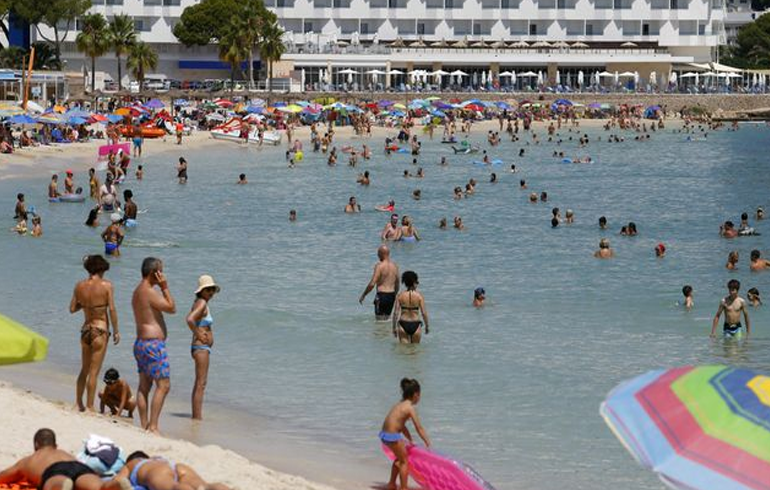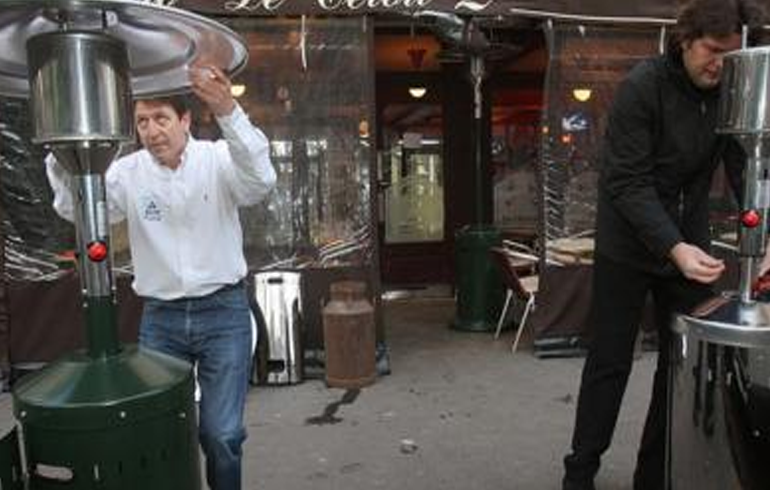Talks are under way with Spain about introducing air bridges with the Balearic and Canary Islands, a UK government source has confirmed.
An air bridge would mean people arriving in the UK from the islands would not have to quarantine for 14 days after rules changed this weekend.
The travel industry is hoping ministers make a decision by Friday.
A government source indicated to the BBC there will not be an immediate decision.
One travel industry source said the government had told them it wanted to study more data from Spain’s Islands before making a decision.
The rate of infection in Spain is 35.1 cases per 100,000 people, while the UK is at 14.7, according to the latest figures from the European Centre for Disease Prevention and Control.
Data up to 19 July suggested there were lower rates of infection in the Balearic and Canary Islands than in mainland Spain.
Among the thousands of British holidaymakers affected by the change in quarantine rules was Transport Secretary Grant Shapps, who flew to Spain on Saturday despite knowing a decision on the policy was due.
Holiday companies have responded to the imposition of the quarantine for people arriving from Spain.
EasyJet said it would operate its full schedule of flights to Spain, but it is cancelling holidays to all Spanish destinations for the next few weeks. It said it only offered holidays where there was no known requirement to self-isolate on arrival or return.
Ryanair said its schedules “remain in place” and it will continue flights in and out of Spain as normal, as did airline and holiday firm Jet2.
But package holiday firm Tui cancelled all mainland Spanish holidays until 9 August.
It said customers due to travel to all areas of Spain between 27 July and 9 August would be able to cancel or amend holidays and receive a full refund or the option to rebook their holiday with an incentive.
However, there will be uncertainty for those with holidays due to depart from 10 August as the company said it will be update passengers with future bookings on 31 July.
Sick pay
Meanwhile, concern is growing among employers about what to do if their staff cannot immediately return to work after holidaying in Spain.
Debbie Pearson runs some small catering businesses in the West Midlands. Staff at her business that caters for weddings and events are furloughed, but staff at two firms that supply meals for the elderly are still working.
Ms Pearson said she will not be able to claim statutory sick pay for workers who must isolate for two weeks upon returning for holiday for either of those businesses.
“If I have to pay to pay them, I would pay them,” she said.
Because one of her businesses only has three staff, it will also pile pressure on the remaining two staff if they have to cover the extra work for two more weeks.
“We pride ourselves on being a good employer,” she said. “If somebody had been abroad and told to isolate, I’d want to make sure they weren’t asked to work.”
Blanket measures
Tui has urged the UK government not to slap blanket quarantines on whole countries.
Andrew Flintham, managing director of TUI UK and Ireland, said the government should have a “regionalised” policy.
That would mean only travellers returning from coronavirus hotspots should be forced to quarantine.
The UK imposed the restriction over the weekend after a spike in infections in some Spanish regions, including Catalonia, where Barcelona is located, and Aragon.
The French government has been telling its nationals to stay away from Catalonia, while Norway has imposed a new 10-day quarantine on all travellers arriving from Spain.
Mr Flintham told the BBC that the government was “rightly nervous” about people’s ability to move “relatively unchecked” around countries which had a spike of cases in certain areas.
However, he said most holidaymakers stayed in one place when they got there and should be safe if they were not in high-risk areas.
“They do not go travelling around wider Spain and then they come home again,,” he said.
“Everything in life has risks, but it’s about taking a proportionate risk-based approach.”
Mr Flintham said that despite the option of seeking a refund, people were determined to go on holiday somewhere.
He added: “Most of our customers that we’ve spoken to so far, they really want to get away, so they’re rebooking something else.”
Waning demand
Paul Charles, spokesman for the Quash Quarantine group, told the BBC that the new rules on Spain had created “a renewed crisis of confidence” among consumers, who were now unsure whether to go anywhere on holiday for fear that the rules might change again.
He said travel firms were already seeing signs of a fall-off in demand among would-be holidaymakers.
The government’s “old-fashioned” policy of blanket quarantines was “a very blunt tool” and a “national embarrassment”, Mr Charles added, and should be replaced by swab tests at airports and an effective track-and-trace system for virus cases.
“Blanket quarantine kills travel,” he said, adding that the policy had dashed the travel industry’s hopes of a successful end to the summer season.
“It’s about survival, it’s not about profit,” he said.
Source: BBC



















































